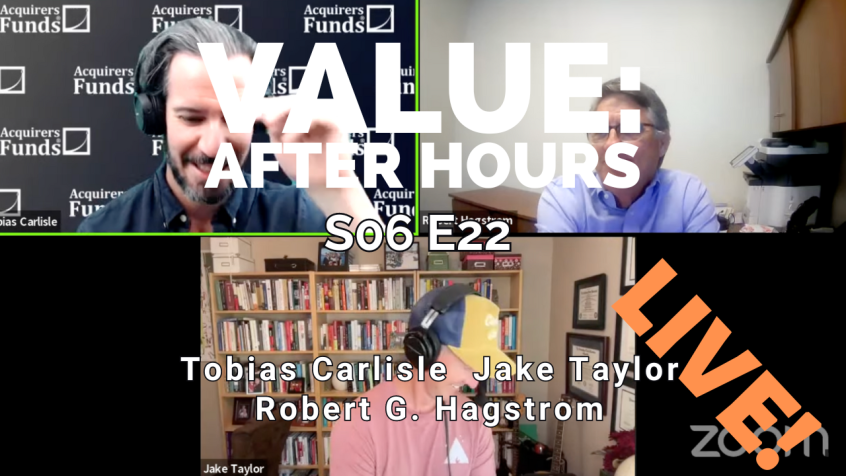During their recent episode, Taylor, Carlisle, and Robert G Hagstrom discussed Buffett’s Purposeful Detachment from the Stock Market, here’s an excerpt from the episode:
Tobias: What is The Warren Buffett Way in the book, The Warren Buffett Way. What’s your conception about that
Robert: Well, yeah, it is– Warren has talked about this. I say it to my clients and in investment seminars in my writing. I said, there’s a very big difference between being a stock picker and thinking about stock markets and what Warren says, being a business picker. Even though those differences may be subtle in your mind, they’re really huge when you parse out how people think about things.
So, if you go back, Warren’s favorite book, The Intelligent Investor, if you go back to the beginning of that book, Ben Graham says, “The minute that you purchase a common stock, you’ve got two choices. The first choice is you can perceive yourself as being a business owner.” You buy 100 shares, 10 shares. You now own. You’re part owner of this company. You can behave as an owner would behave if they owned this great business. Or, you can think about it as a piece of paper that you can trade, and flip around, and make speculations, and interest, rates and sectors and stuff like that, because you’re going to do one or the other.
What Warren did, basically, as he became the controlling owner of Berkshire Hathaway, really ingested the idea of being a business owner. He basically grew Berkshire Hathaway as a collection of businesses, some were private and a lot were publicly traded companies, but he treated them all the same. There’s a profound difference, Toby and Jake. Profound difference between the attitude of someone who thinks they own a business and someone who buys a stock and begins putting portfolios together and changing portfolios based upon stock theories, and interest rates, and inflation and all this stuff, it’s a totally different game.
So, The Warren Buffett Way is about how to invest in businesses. The benefit is you got this public market that’s got a huge menu of some really great companies with great economic returns, with great managers. It gives you the opportunity to become an owner of these companies. But you have to put on your blinders and your ear muffs sometimes and divorce yourself of the stock market.
Somebody asked me, “What do you think is Warren’s competitive position, his competitive advantage?” I think I finally came up to the resolution, is that he “purposely–” He purposely disengages from the stock market. He doesn’t care about the stock market. I talked to his secretary, Debbie Bosanek. I said, “Does he have a tv? Does he watch CNBC?” He goes, “Oh, yeah, he turns it on every once in a while, but he has the sound off. He never listens to it. He just looks at it as a tape. There’s new headlines.”
It’s his purposeful detachment from the stock market that I think has led to a lot of his success. And then the second layer was he both simultaneously owned companies, private companies like See’s Candies and the Buffalo Evening News and National Indemnity and all that. At the same time, he was owning public companies, Washington Post, Capital Cities on down the line, and he treated them both the same. And in doing that, I think that’s what led to his great success. Because in conclusion, I think the mistakes that people make investing is doing things that are not highly predictable. Even though we say you cannot predict the market in the short run, that’s a fact. Science? There’s no science yet that can predict the market in the short run. You do all these things that are unpredictable with low probability outcomes and people go, “Yeah, I know,” but they still do it anyway. And so, it’s a lot of unforced errors that people do by being stock owners, stock traders.
But a business owner doesn’t have unforced errors. They basically are buy and hold great companies. If you do that over time, you get some pretty good numbers. Whereas if you try to be a stock trader, you’re going to have a lot of error rates that take away from your returns. I know that was a long-winded answer, but that’s how I think about it.
You can find out more about the VALUE: After Hours Podcast here – VALUE: After Hours Podcast. You can also listen to the podcast on your favorite podcast platforms here:
For all the latest news and podcasts, join our free newsletter here.
Don’t forget to check out our FREE Large Cap 1000 – Stock Screener, here at The Acquirer’s Multiple:



